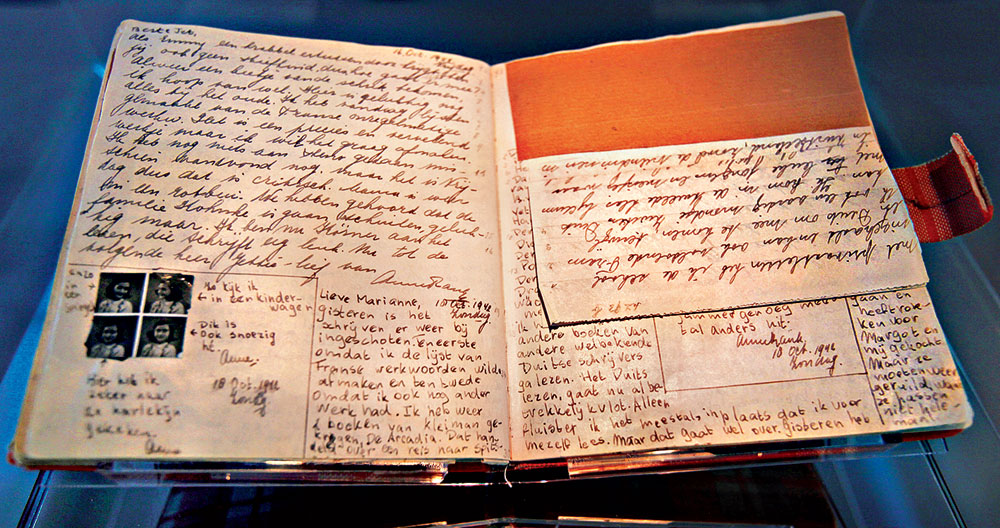The 12th day of June is significant in more ways than one. For instance, it marks the birth anniversary of Annelies Marie Frank — better known to the world as Anne Frank. Even more significantly, on this day in 1942, Anne received her red-and-white plaid-covered diary. It was her 13th birthday. This diary went on to record the years spent in the ‘Secret Annex’, the cluster of rooms above Anne’s father’s office in Amsterdam where Anne, her sister, Margot, her parents and four of their acquaintances hid from the Nazis. As a story of growth and a study of the human mind in the grip of inconceivable dread, it has become justifiably iconic.
More important, though, Anne’s diary became the portal through which many readers had their first encounter with the Holocaust. Most personal records do not stand the test of time, but Anne Frank’s diary has had a lasting literary and historical impact. Reading diaries is pleasurable; they are also valuable windows for looking into the past. Personal texts usually have a certain candour that is in direct contrast to the premeditated and guarded language of ‘official’ documents. The historical richness of these texts can be found in the friction between the general form available to all writers and the way individuals used it for their own ends. For example, in the 19th century, it was common for a woman in love to take joy in her beloved’s letter — and to show it to her friends — simply because it stuck to good form. Parents, too, did the same thing with the letters they received from their children.
Moreover, letters and diaries often find common ground in universally-shared life events. Letters in families tend to revolve around certain events: births, illness and health, courtships and weddings, separations and deaths. Diarists, too, put pen to paper when faced with life’s transitions. However, in other instances, their writing becomes a lifelong practice, bolstered by the joy of recording the passing days. As people wrote about events — encountering someone new, the sudden advent of rain, the death of a loved one — they invariably wrote about their relationships with other people. And by doing so, they wrote themselves anew.
Thus, the value of reading diaries involves understanding how writers found themselves in their own words. Perhaps this is part of what Anaïs Nin meant when she wrote, “The diary taught me that it is in the moments of emotional crisis that human beings reveal themselves most accurately. I learned to choose the heightened moments because they are the moments of revelation.” Susan Sontag, too, summed it up succinctly: “In the journal I do not just express myself more openly than I could to any person; I create myself.”










